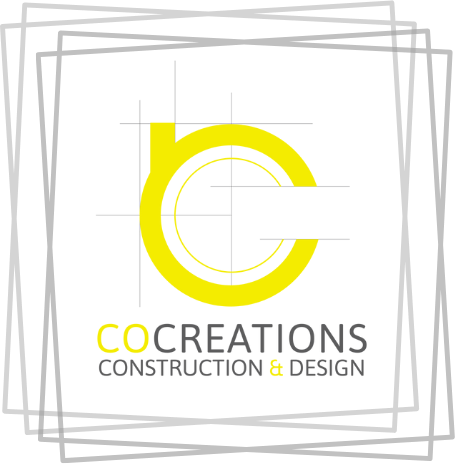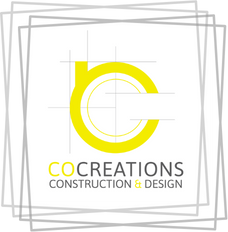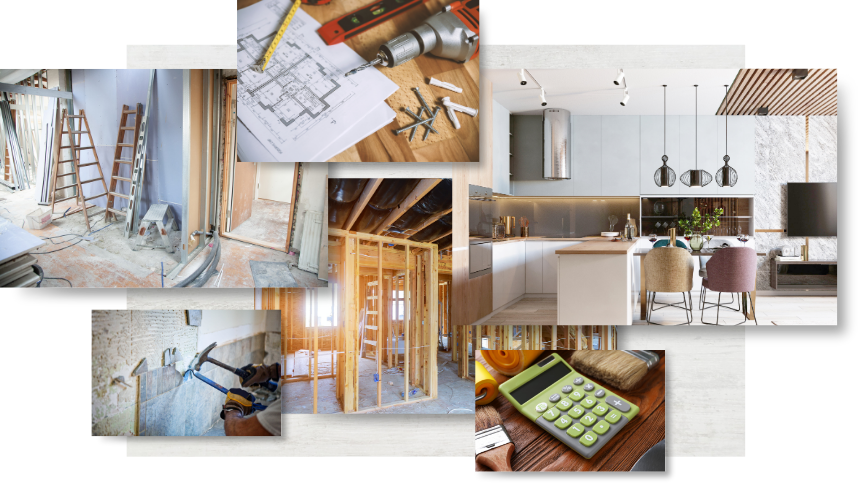Sustainable building practices in residential construction have continued to evolve and gain prominence in 2023, driven by the growing awareness of environmental concerns, energy efficiency, and the desire for healthier living spaces. Here are some key trends and practices in sustainable residential construction for 2023:
- Net-Zero Energy Homes:
- Net-zero energy homes, which produce as much energy as they consume, have become more common. This is achieved through a combination of energy-efficient design, on-site renewable energy sources (like solar panels), and advanced energy storage systems.
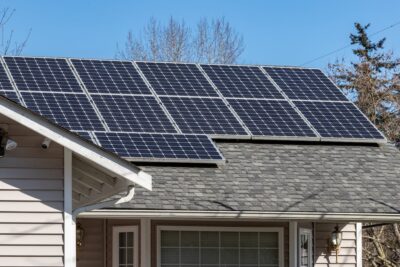
- Net-zero energy homes, which produce as much energy as they consume, have become more common. This is achieved through a combination of energy-efficient design, on-site renewable energy sources (like solar panels), and advanced energy storage systems.
- Passive House Design:
- Passive house principles emphasize super insulation, airtight construction, high-performance windows, and mechanical ventilation to minimize energy usage for heating and cooling.
- Sustainable Materials:
- Builders are increasingly using sustainable and eco-friendly building materials, such as recycled, reclaimed, or low-impact materials. Bamboo, recycled steel, reclaimed wood, and low-VOC (volatile organic compound) paints are popular choices. A recent project of ours included a custom cabinet made from materials left over from a previous project.
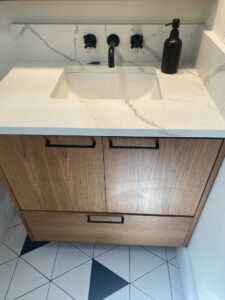
- Builders are increasingly using sustainable and eco-friendly building materials, such as recycled, reclaimed, or low-impact materials. Bamboo, recycled steel, reclaimed wood, and low-VOC (volatile organic compound) paints are popular choices. A recent project of ours included a custom cabinet made from materials left over from a previous project.
- Energy-Efficient HVAC Systems:
- High-efficiency heating, ventilation, and air conditioning (HVAC) systems are being integrated into residential buildings to reduce energy consumption and improve indoor air quality. Heat pumps and geothermal systems are gaining traction.
- Water Conservation:
- Water-efficient fixtures and technologies like low-flow toilets, rainwater harvesting systems, and graywater reuse systems are becoming standard features in sustainable homes, reducing water wastage.
- Smart Home Integration:
- Smart home technology is being used to optimize energy usage. Automated systems control lighting, HVAC, and appliances, helping homeowners monitor and reduce energy consumption.
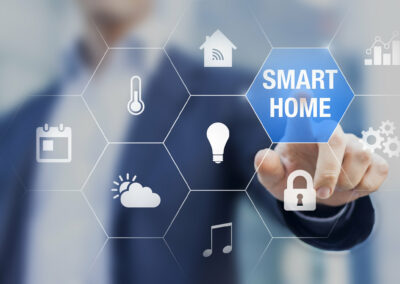
- Smart home technology is being used to optimize energy usage. Automated systems control lighting, HVAC, and appliances, helping homeowners monitor and reduce energy consumption.
- Green Roof and Living Walls:
- Green roofs and living walls provide insulation, reduce stormwater runoff, and enhance air quality. They are being incorporated into residential construction to increase energy efficiency and promote biodiversity.
- Sustainable Landscaping:
- Sustainable landscaping practices include using native plants, plants with low water consumption, and permeable paving to reduce water usage and support local ecosystems.
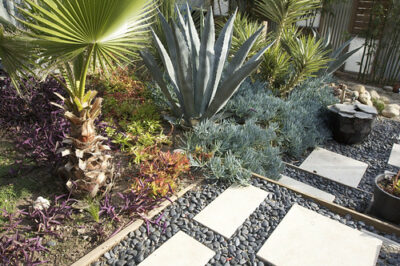
- Sustainable landscaping practices include using native plants, plants with low water consumption, and permeable paving to reduce water usage and support local ecosystems.
- Circular Building Practices:
- Often referred to as circular construction, is an approach to building and design that aims to minimize waste, reduce resource consumption, and promote sustainability by emphasizing material reuse, recycling, and responsible sourcing. Circular construction seeks to create durable and long-lasting buildings and building components to extend their useful life. This includes using high-quality materials and finishes that require less maintenance and repair.
- Health and Wellness Features:
- Homes are also being designed to prioritize indoor air quality, natural lighting, and comfortable living spaces to enhance the health and well-being of occupants.
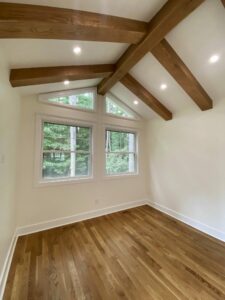
- Homes are also being designed to prioritize indoor air quality, natural lighting, and comfortable living spaces to enhance the health and well-being of occupants.
In 2023, sustainable building practices in residential construction have become more accessible and mainstream, driven by a combination of environmental concerns, technological advancements, and the desire for healthier and more energy-efficient homes. Homeowners are increasingly recognizing the long-term benefits of sustainable living and are willing to invest in eco-friendly residential properties.
At CoCreations, we use many high-quality and sustainable products in our renovations and modern smart home features. Call now if you are interested in starting your own own renovation with energy efficient products. We can walk you through the entire process.
